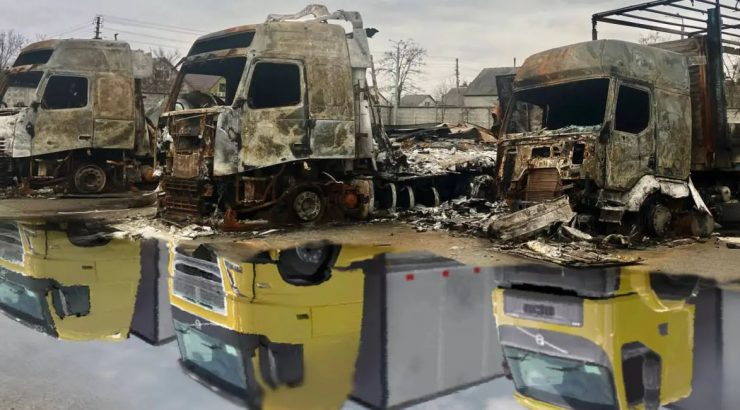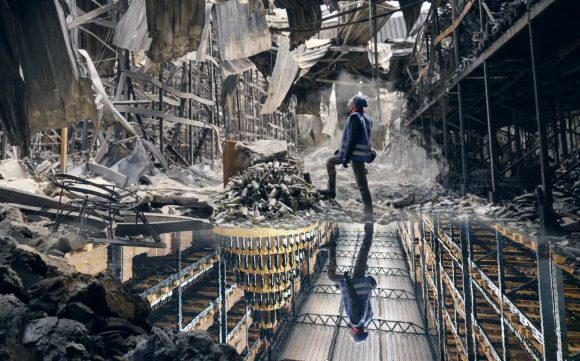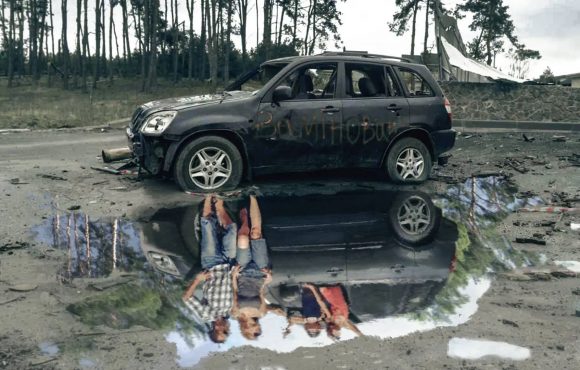
Wounded Land: Unbroken Spirit of Ukraine Alum Documents the Lives of Ukrainians During War with Russia
October 10, 2022
Wilkinson College alum, Scott Marshutz ‘87 (English major with a journalism emphasis) started Marshootz Productions in 2017, producing documentary films that have tackled subjects such as the desalination project in Huntington Beach, endangered marine life on Mataking Island in Malaysia, and Let ‘Em Play, the story of four Southern California para-athletes who advance into the world of international Paralympic competition. In his most recent project Wounded Land, Marshutz and his team tell the stories of a group of Ukrainian people who strive to protect their country and businesses during the Russo-Ukrainian War. The conflict officially started in 2014 with the Russian annexation of Crimea, but escalated in February 2022 when Russia launched a full-scale invasion of the rest of Ukraine.
“They help as volunteers or fight as soldiers while defending their land, which Russians are intentionally destroying. Before the war started, some were building their businesses, but today they are forced to work even harder to keep their entrepreneurial spirit alive.”

Good Wine storage warehouse in Ukraine. Good Wine is a key name in the Ukrainian wine scene, a remarkable wine importer and distributor that has been at the forefront of the burgeoning wine drinking culture of recent years in the country. Photo courtesy of Roman Zajac.
The Voice of Wilkinson spoke with Marshutz about Wounded Land, which he recently completed. Check out the trailer here and be on the lookout for details on a special screening of this documentary in the spring.
Voice of Wilkinson: Tell me about the film and how it got started.
Scott Marshutz: Andriy Semenyuk, the director of photography on my first sports documentary Let ‘Em Play was born and raised in Lviv, Ukraine. After Russia invaded in February, we talked about what we could do. He told me about a film he and another colleague were making last fall (October ’21) about the wine-making regions of Ukraine, but the film wasn’t completed. So I suggested we circle back to the people they had interviewed to see how the war was affecting their lives and businesses. And that’s what we did. So the film flashes back and forth from when the vintners/farmers were emerging from the global pandemic and then pivots quickly to the obstacles they’re facing as their vineyards and fields are being hit by missiles, etc. There’s one scene where you can actually hear explosions in the background while they’re interviewing one of the vintners—that’s how close we were to the front lines.
VoW: What did you learn about the impact the war is having on civilians?
SM: There’s a huge psychological effect among the able-bodied males, who want to serve the Ukrainian Armed Forces, but as owners/managers have to stay focused on their businesses.
VoW: Can you tell me about the crew that went to Ukraine?
SM: I was the only American involved; the other three were Ukrainian (during the production phase). After Andriy [Semenyuk] and I agreed on the initial plan to make the film, I came onboard as executive producer. All post production was completed in Ukraine and Poland from May through September ’22.
VoW: Why did you do this documentary?
SM: As a freelance journalist and documentarian, the Russian invasion provided me an opportunity to make a film from a completely different angle than what the general public is receiving, at least from western media outlets, on a daily basis.
The POV [point-of-view] is 100 percent pro-Ukrainian: all the physical obstacles and mental anxiety they’re dealing with day to day yet everyone we talked to expressed total confidence that Ukraine would eventually prevail.
According to bbc.com Russian invaded Ukraine in February 2022, surrounding the Ukrainian capital Kyiv, while also launching attacks in other parts of the country, seizing large areas in the south, east and north-east of Ukraine. In April, Ukrainian forces retook large areas around Kyiv and in September drove back Russian forces regaining over 3,000 miles around the city of Kharkiv and Luhansk, the most significant territorial gains since the war started.
According to Reuters: (updated on October 4, 2022)
- Deaths: At least 29,916 people
- Non-fatal injuries: At least 53,616 people
- Displaced: Approximately 14 million people
- Buildings destroyed: At least 140,000
- Property damage: Approximately $350B
(Photo header: Truck parking near Good Wine. Good Wine is a key name in the Ukrainian wine scene, a remarkable wine importer and distributor that has been at the forefront of the burgeoning wine drinking culture of recent years in the country. Photo courtesy of Marshootz Productions.)


